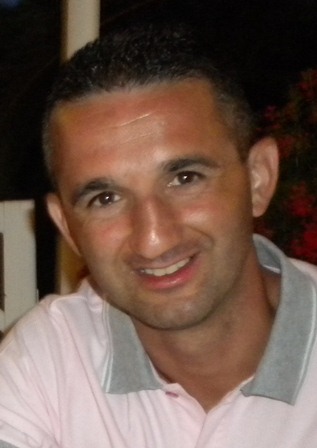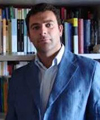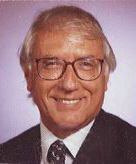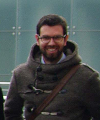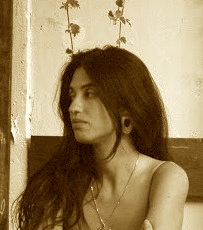Studying at the University of Verona
Here you can find information on the organisational aspects of the Programme, lecture timetables, learning activities and useful contact details for your time at the University, from enrolment to graduation.
Academic calendar
The academic calendar shows the deadlines and scheduled events that are relevant to students, teaching and technical-administrative staff of the University. Public holidays and University closures are also indicated. The academic year normally begins on 1 October each year and ends on 30 September of the following year.
Course calendar
The Academic Calendar sets out the degree programme lecture and exam timetables, as well as the relevant university closure dates..
| Period | From | To |
|---|---|---|
| Semestrino IA | Sep 28, 2015 | Nov 14, 2015 |
| Semestrino IB | Nov 16, 2015 | Jan 16, 2016 |
| Semestrino IIA | Feb 22, 2016 | Apr 16, 2016 |
| Semestrino IIB | Apr 18, 2016 | Jun 4, 2016 |
| Session | From | To |
|---|---|---|
| Sessione invernale | Jan 18, 2016 | Feb 20, 2016 |
| Sessione estiva | Jun 6, 2016 | Jul 30, 2016 |
| Sessione autunnale | Sep 1, 2016 | Sep 30, 2016 |
| Session | From | To |
|---|---|---|
| Sessione estiva | Jul 7, 2016 | Jul 7, 2016 |
| Sessione autunnale | Nov 24, 2016 | Nov 24, 2016 |
| Sessione invernale | Apr 3, 2017 | Apr 8, 2017 |
| Period | From | To |
|---|---|---|
| Festa di Ognissanti | Nov 1, 2015 | Nov 1, 2015 |
| Festa dell'Immacolata | Dec 8, 2015 | Dec 8, 2015 |
| Vacanze di Natale | Dec 23, 2015 | Jan 6, 2016 |
| Vancanze di Pasqua | Mar 24, 2016 | Mar 29, 2016 |
| Festa della Liberazione | Apr 25, 2016 | Apr 25, 2016 |
| Festa dei Lavoratori | May 1, 2016 | May 1, 2016 |
| Festa del S. Patrono S. Zeno | May 21, 2016 | May 21, 2016 |
| Festa della Repubblica | Jun 2, 2016 | Jun 2, 2016 |
| Vacanze estive | Aug 8, 2016 | Aug 15, 2016 |
Exam calendar
Exam dates and rounds are managed by the relevant Culture and Civilisation Teaching and Student Services Unit.
To view all the exam sessions available, please use the Exam dashboard on ESSE3.
If you forgot your login details or have problems logging in, please contact the relevant IT HelpDesk, or check the login details recovery web page.
Should you have any doubts or questions, please check the Enrollment FAQs
Academic staff
 maurizio.boscaini@univr.it
maurizio.boscaini@univr.it
 paolamaria.caleffi@univr.it
paolamaria.caleffi@univr.it
 paolodalben@tin.it
paolodalben@tin.it
 mila.dallapreda@univr.it
mila.dallapreda@univr.it
 ettore.deangeli@univr.it
ettore.deangeli@univr.it
 maxclaudiogallo@gmail.com
maxclaudiogallo@gmail.com
 mariangela.lando@univr.it - marilando771@gmail.com
mariangela.lando@univr.it - marilando771@gmail.com

Mastrocinque Attilio
 attilio.mastrocinque@univr.it
attilio.mastrocinque@univr.it
 +39 045802 8386
+39 045802 8386
 marco.menato@univr.it
marco.menato@univr.it

Migliorati Lorenzo
 lorenzo.migliorati@univr.it
lorenzo.migliorati@univr.it
 045802 8135
045802 8135
 giuseppe.pernigo@univr.it
giuseppe.pernigo@univr.it
 alberto.scandola@univr.it
alberto.scandola@univr.it
Tani Stefano
 stefano.tani@univr.it
stefano.tani@univr.it
 +39 045802 8110
+39 045802 8110
 silvano@tommasoli.it
silvano@tommasoli.it
 ivan.valbusa@univr.it
ivan.valbusa@univr.it
Study Plan
The Study Plan includes all modules, teaching and learning activities that each student will need to undertake during their time at the University.
Please select your Study Plan based on your enrollment year.
1° Year
| Modules | Credits | TAF | SSD |
|---|
2° Year activated in the A.Y. 2016/2017
| Modules | Credits | TAF | SSD |
|---|
3° Year activated in the A.Y. 2017/2018
| Modules | Credits | TAF | SSD |
|---|
| Modules | Credits | TAF | SSD |
|---|
| Modules | Credits | TAF | SSD |
|---|
| Modules | Credits | TAF | SSD |
|---|
| Modules | Credits | TAF | SSD |
|---|
Legend | Type of training activity (TTA)
TAF (Type of Educational Activity) All courses and activities are classified into different types of educational activities, indicated by a letter.
History of Religions (i) SC (2017/2018)
Teaching code
4S02209
Academic staff
Coordinator
Credits
6
Language
Italian
Scientific Disciplinary Sector (SSD)
M-STO/06 - HISTORY OF RELIGIONS
Period
First half of Semester 2 dal Feb 26, 2018 al Apr 21, 2018.
Learning outcomes
The knowledge of several important problems concerning the relationship between religion and magic will be dealt with in the course. First of all, the terminology of magic will be clarified and then we will analyse documents referring to a series of enactements and events corresponding to the definitions of magic and the related terminology.
Students will will be introduced to a critical approach to the different opinions about magic in different societies, and they will be put in comparison with texts and documents describing rituals and enactements labelled magic. Documents taken into account will are taken mostly from the Roman imperial history and from the modern age in northern Italy so that a large diachronic view of the phenomenon will be allowed and an evaluation of the different ways of conceiving of magic over time and among different cultures will be possible.
Students will be able to evaluate autonomously the documents which will be discussed, thanks to comparisons between either different authors or different kinds of sources, in order to deem their reliability.
Students can improve their communication skill by expressing opinions about the topics of the course and by receiving answers and directions on how to feature their discourse.
Their learning skill will be improved, as well, thanks to the critical reading of texts and the study of related iconographies.
At the end of the course students are expected to show that they have understood almost the most important topics dealt with, that they are able to analyse critically both sources and iconographies taken into account, by explainig their points of view, in a clear manner, according to a rational series of arguments based on the fundamental documents.
Program
1) the first part consists in the lessons previewing readings of and comments on passages of several authors and documents, often accompanied by related iconographies.
2) The study of Pliny the Elder, Naturalis historia XXX, and Hippolytus, Refutatio omnium haeresium, book V (whatever edition; for ex. Plinio, a cura di Antonio Corso, Turin, Einaudi; Hippolytus, a cura di Augusto Cosentino, Roma, Città Nuova. English translations of both authors are available online for free).
3) A handbllok of history of religions. Suggested: G. Sfameni Gasparro, Introduzione alla storia delle religioni, Rome - Bari : Laterza , 2011
Moreover: Cohn, Norman: Europe's inner demons: an enquiry inspired by the great witch-hunt, Brighton: Sussex Univ. Pr., 1975; Italian translation: N. Cohn, I demoni dentro: le origini del sabba e la grande caccia alle streghe, Milan: UNICOPLI, \1994
Further readings (not mandatory):
Fritz Graf: Magic in the ancient world. Transl. by Franklin Philip., Cambridge, Mass. ; London: Harvard Univ. Press, 1997; Ital. transl.
Fritz Graf, La magia nel mondo antico, Bari, Laterza, 1995
Carlo Ginzburg, I benandanti: stregoneria e culti agrari tra Cinquecento e Seicento. -Torino: Einaudi, 2002
The educational activities consist in normal lessons in which a series of powerpoint files will be presented with archaeological images and also texts. The documents and images presented in the classes will be increasingly uploaded in the E-Learning site so that at the end of the course they will be available.
Students who cannot attend one or more classes can study for the exam by using the E-Learning page of the course.
| Author | Title | Publishing house | Year | ISBN | Notes |
|---|---|---|---|---|---|
| Carlo Ginzburg | I benandanti: stregoneria e culti agrari tra Cinquecento e Seicento | Einaudi | 2002 | lettura facoltativa | |
| Norman Cohn | I demoni dentro: le origini del sabba e la grande caccia alle streghe | UNICOPLI | 1994 | o l'originale: Norman Cohn, Europe's inner demons: an enquiry inspired by the great witch-hunt, Brighton: Sussex Univ. Pr., 1975 Studio obbligatorio | |
| Giulia Sfameni Gasparro | Introduzione alla storia delle religioni | Laterza | 2011 | studio obbligatorio | |
| Fritz Graf | La magia nel mondo antico | Laterza | 1995 | lettura facoltativa |
Examination Methods
oral exam. Questions will be posed in order to ascertain what learning and knowing level is reached. Eventually, the questions could go further in deep by focussing on texts and/or documents, and images discussed during the course.
Type D and Type F activities
Modules not yet included
Career prospects
Module/Programme news
News for students
There you will find information, resources and services useful during your time at the University (Student’s exam record, your study plan on ESSE3, Distance Learning courses, university email account, office forms, administrative procedures, etc.). You can log into MyUnivr with your GIA login details: only in this way will you be able to receive notification of all the notices from your teachers and your secretariat via email and soon also via the Univr app.
Graduation
Documents
| Title | Info File |
|---|---|
|
|
pdf, it, 263 KB, 09/02/22 |
List of theses and work experience proposals
| theses proposals | Research area |
|---|---|
| Laureandi Scienze della Comunicazione: vademecum | Various topics |
| Stage | Research area |
|---|---|
| L'iter del libro in biblioteca | Various topics |
| Proposte stages - Centro di ricerca Skenè | Various topics |







